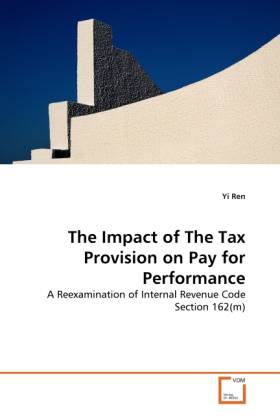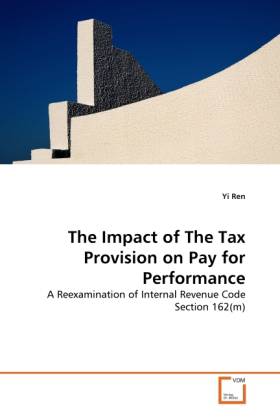
- Afhalen na 1 uur in een winkel met voorraad
- Gratis thuislevering in België vanaf € 30
- Ruim aanbod met 7 miljoen producten
- Afhalen na 1 uur in een winkel met voorraad
- Gratis thuislevering in België vanaf € 30
- Ruim aanbod met 7 miljoen producten
Zoeken
The Impact of The Tax Provision on Pay for Performance
A Reexamination of Internal Revenue Code Section 162(m)
Yi Ren
Paperback | Engels
€ 48,45
+ 96 punten
Omschrijving
Given recent public rage over executive pay, especially over large salaries for executives at companies that have received bailout money, President Obama's administration is working on tougher restrictions on executive compensation. His main principles, consistent with the objectives of Internal Revenue Code Section 162(m), were meant to curb excessive executive compensation and ensure that pay reflects corporate performance. This study provides a retrospective evaluation of the 1993 regulatory intervention on corporate pay decisions, and extends the analysis of the effectiveness of the Internal Revenue Code Section 162(m) on long-term performance. The findings of this paper offer some insights into the economic effects consequent to government legislation and provide suggestions and insights valuable to those persons engaged in current policy intervention attempts.
Specificaties
Betrokkenen
- Auteur(s):
- Uitgeverij:
Inhoud
- Aantal bladzijden:
- 68
- Taal:
- Engels
Eigenschappen
- Productcode (EAN):
- 9783639300055
- Verschijningsdatum:
- 19/10/2010
- Uitvoering:
- Paperback
- Formaat:
- Trade paperback (VS)
- Afmetingen:
- 152 mm x 229 mm
- Gewicht:
- 113 g

Alleen bij Standaard Boekhandel
+ 96 punten op je klantenkaart van Standaard Boekhandel
Beoordelingen
We publiceren alleen reviews die voldoen aan de voorwaarden voor reviews. Bekijk onze voorwaarden voor reviews.











